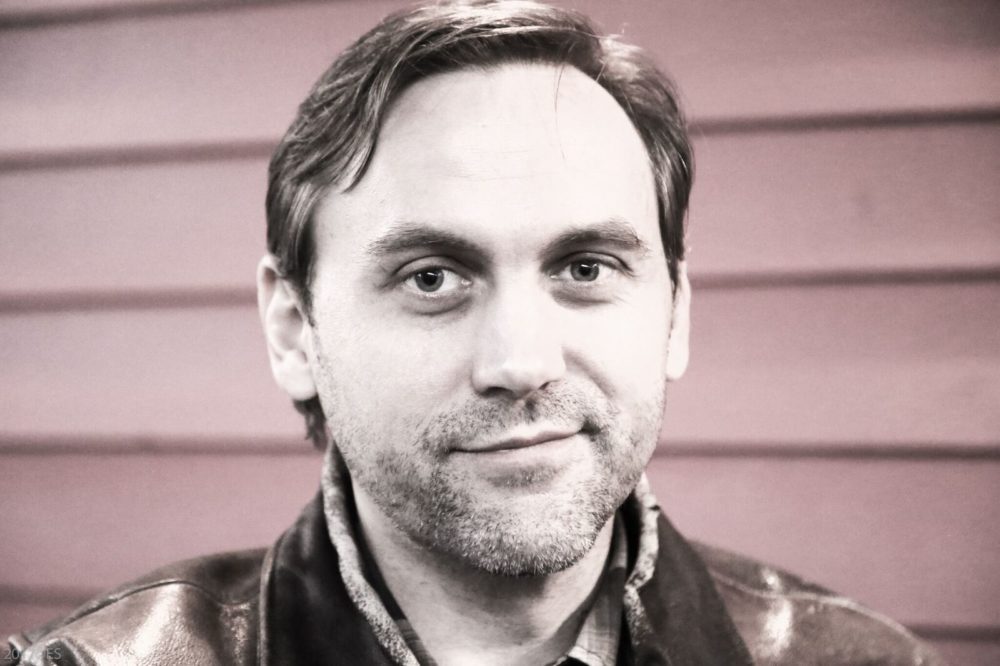By David R. Wheeler, Editor
Universal basic income advocate Scott Santens is one of the few people on earth who have crowdfunded a monthly basic income. That means people from around the world pay him — just for being himself. Why would they do such a thing? They want to illustrate the benefits to a society of giving everyone a monthly stipend they can live on. Studies show that about half of our existing jobs could be automated in the next few decades. But unlike in the past, we may not be able to replace the eliminated jobs with other white-collar jobs. Instead, we may simply have skyrocketing unemployment that makes the 1930s Great Depression look like a picnic. Tech luminaries such as Elon Musk have urged the country to start thinking about solutions like a UBI. You know those self-driving cars? When this technology becomes widespread, exactly what will happen to the 4 million people who drive for a living (like truckers and cab drivers)? Will they suddenly become coders in Silicon Valley? It’s doubtful.
When Bill Gates came out with his idea of taxing robots, I asked Santens if he would answer some questions for us here at AliveTampaBay, regarding Gates’ approach to dealing with automation.
In addition to crowdfunding a monthly basic income for himself, Santens has been a moderator of the Basic Income community on Reddit since 2013. He is on the board of directors of USBIG, Inc., is a founding member of the Economic Security Project, and is an advisor to the Universal Income Project. He lives in New Orleans, Louisiana.
AliveTampaBay: So, when Bill Gates says “tax the robots,” is he basically arguing for a basic income? Isn’t he saying, “There won’t be jobs in the future, but we still need money to live on. So take the money from robots and give it to people?”
Scott Santens: As far as I know, Gates is not arguing for basic income. He wants the money from robots to basically fund everything government already does, along with more stuff like retraining programs. I imagine he sees this as a way of avoiding taxing him more, and that he has a belief that the existing safety net works for the most part and everything will be okay as long as the unemployed are simply retrained with better skills for better jobs.
ATB: Other people recognize that job retraining probably won’t cut it in the future.
Santens: Benoit Hamon, the Presidential candidate in France, is talking about UBI and funding it through a direct tax on robots. He’s an example of making that connection explicitly and his plan has the seal of approval of both Piketty and Saez and other economists.
ATB: Where will we get the money for basic income?
Santens: Personally, I think it’s important for people to understand that machines are really the ones paying for basic income, but at the same time, I don’t think it’s a good idea to directly tax them. I don’t want to in any way disincentivize automation. If we make automation more expensive to invest in, that means people will delay investing in automation, and therefore people will need to continue doing those jobs for longer than they otherwise would. One of the reasons I think UBI is so important is that I want us to embrace automation, instead of continuing to pull against it.
I think it makes more sense to tax things like capital gains and dividends. I’ve written about this.
That way the tax is more indirect, and instead of taxing robots themselves, we’re taxing those (like Gates) who are accumulating the concentrating gains. We could also tax what they are investing those gains in, through things like a land value tax and a financial transaction tax.
ATB: Some people see basic income as a giveaway, encouraging laziness. Others see a basic income as inevitable, because there will be basically no jobs in the future when AI really takes off. But there’s another angle, too. Citizens are the ones who have funded government research that has led to this huge accumulation of wealth in the hands of a few people. Citizens are the ones whose air, earth, and water are being used to enrich big companies. So shouldn’t citizens get something back?
Santens: I think we should do a better job of making sure we the people recognize ourselves as the investors who made those robots possible, such that we receive a dividend of the profits.
For example, it should be more like Alaska, where if a robot is made of say zinc and copper and steel and a patent monopoly granted by the state, that people should receive their share of the natural resources and their share of the patent revenue.
Also I like Yanis Varoufakis’ idea of mandating a percentage of all IPO stocks be put into a national mutual fund to pay dividends to everyone, again as their share because they were the ones who paid for all the Level I R&D.
Interviews may be condensed and edited for brevity, clarity, and style.
This is part of a series of conversations about automation, artificial intelligence, and the future of jobs in the American workforce. Read AliveTampaBay editor David R. Wheeler’s take on Gates’ idea here. Also read business professor Gary Beemer’s thoughts that he shared with AliveTampaBay on the subject.


